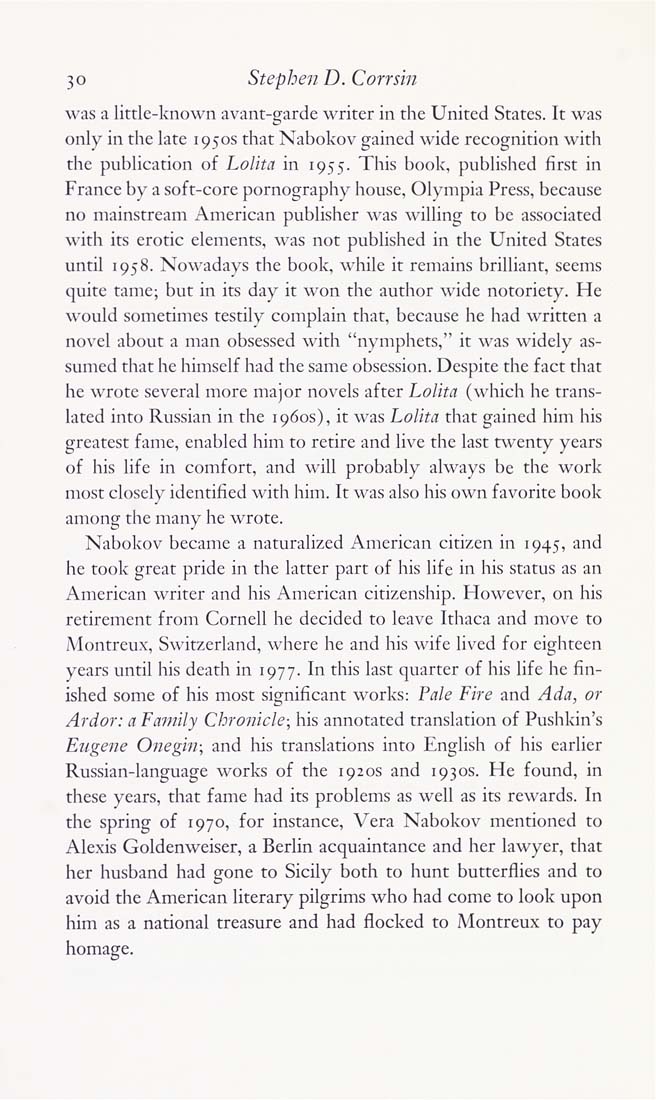Columbia Library columns (v.33(1983Nov-1984May))
(New York : Friends of the Columbia Libraries. )
|
||
|
|
|
|
| v.33,no.2(1984:Feb): Page 30 |

30 Stephe7i D. Corrsin was a little-known avant-garde writer in the United States. It was only in the late 1950s that Nabokov gained wide recognition with the publication of Lolita in 1955. This book, published first in France by a soft-core pornography house, Olympia Press, because no mainstream American publisher was willing to be associated with its erotic elements, was not published in the United States until 1958. Nowadays the book, while it remains brilliant, seems quite tame; but in its day it won the author wide notoriety. He would sometimes testily complain that, because he had written a novel about a man obsessed with "nymphets," it was widely as¬ sumed that he himself had the same obsession. Despite the fact that he wrote several more major novels after Lolita (which he trans¬ lated into Russian in the 1960s), it was Lolita that gained him his greatest fame, enabled him to retire and live the last twenty years of his life in comfort, and will probably always be the work most closely identified with him. It was also his own favorite book among the many he wrote. Nabokov became a naturalized American citizen in 1945, and he took great pride in the latter part of his life in his status as an American writer and his American citizenship. However, on his retirement from Cornell he decided to leave Ithaca and move to Montreux, Switzerland, where he and his wife lived for eighteen years until his death in 1977. In this last quarter of Iiis life he fin¬ ished some of his most significant works: Pale Fire and Ada, or Ardor: a Fa7mly Chronicle; his annotated translation of Pushkin's Euge7ie Onegi7i; and his translations into English of his earlier Russian-language works of the 1920s and 1930s. He found, in these years, that fame had its problems as well as its rewards. In the spring of 1970, for instance. Vera Nabokov mentioned to Alexis Goldenweiser, a Berlin acquaintance and her lawyer, that her husband had gone to Sicily both to hunt butterflies and to avoid the American literary pilgrims who had come to look upon him as a national treasure and had flocked to Montreux to pay homage. |
| v.33,no.2(1984:Feb): Page 30 |







